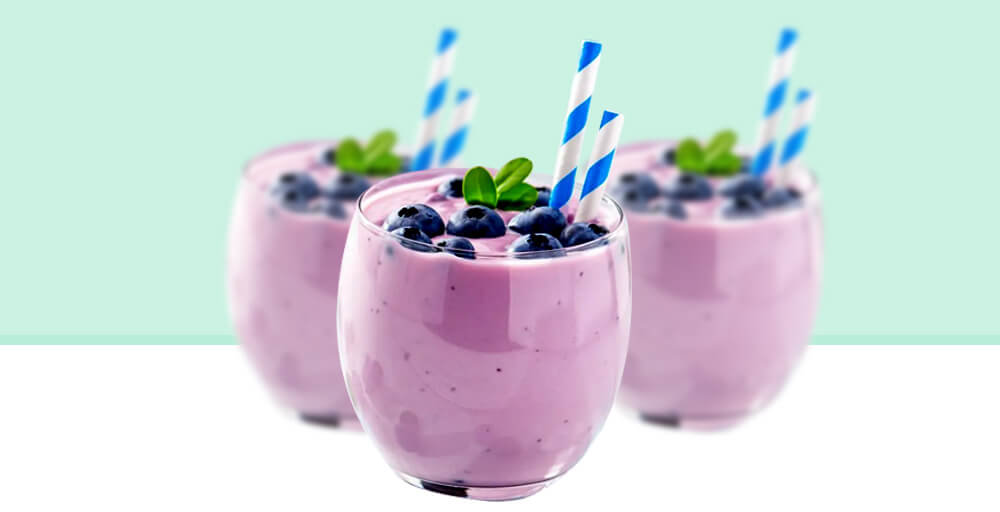We have tried to present all the steps on how to make a smoothie with yogurt and frozen fruit very easily. We embark on a journey to create fresh and nutritious blends that will enhance your taste buds. Our step-by-step instructions and tips will transform your kitchen into a smoothie heaven. This guide promises a symphony of flavors, ensuring your smoothie experience is not just a routine but a joyous occasion of healthy indulgence. Let’s blend it to perfection!
How to make a smoothie with yogurt and frozen fruit
In this regard, 3 very simple and healthy recipes are given.
Recipe 1: Classic Berry Bliss Smoothie
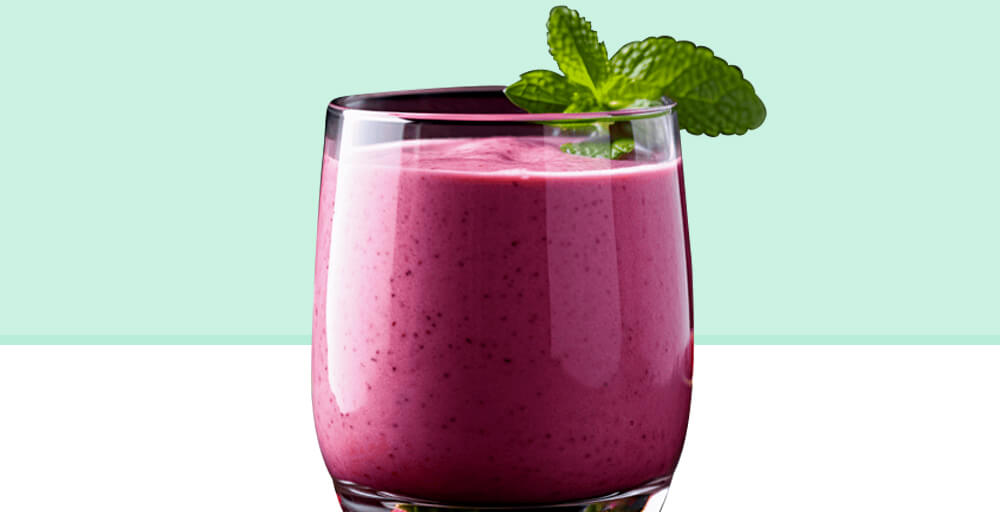
Ingredients:
- 1 cup frozen mixed berries
- 1/2 cup vanilla yogurt
- 1 banana, peeled
- 1/2 cup orange juice
- 1 tablespoon honey (optional)
Instructions:
- Blend berries, yogurt, banana, and orange juice until smooth.
- Add honey for sweetness if desired.
- Pour into a glass and enjoy the delicious Classic Berry Bliss Smoothie!
Nutritional Value per Serving:
Frozen Mixed Berries (1 cup):
- Calories: Approximately 70
- Dietary Fiber: Around 7 grams
- Vitamin C: a rich source that supports immune health
- Antioxidants provide various health benefits.
Vanilla Yogurt (1/2 cup):
- Calories: Approximately 110
- Protein: About 5–6 grams
- Calcium: significant amount for bone health
- Probiotics are beneficial for gut health.
Banana, Peeled (1 medium-sized):
- Calories: Approximately 105
- Carbohydrates: About 27 grams
- Dietary Fiber: Around 3 grams
- Potassium: Contributes to heart and muscle health
Orange Juice (1/2 cup):
- Calories: Approximately 55
- Vitamin C: Contributes to immune health
- Natural sugars provide a source of energy.
Honey (1 tablespoon, optional):
- Calories: approximately 60
- Carbohydrates: About 17 grams (all from sugars)
- Antioxidants: Contains various beneficial compounds
Recipe 2: Mango Tango Delight Smoothie
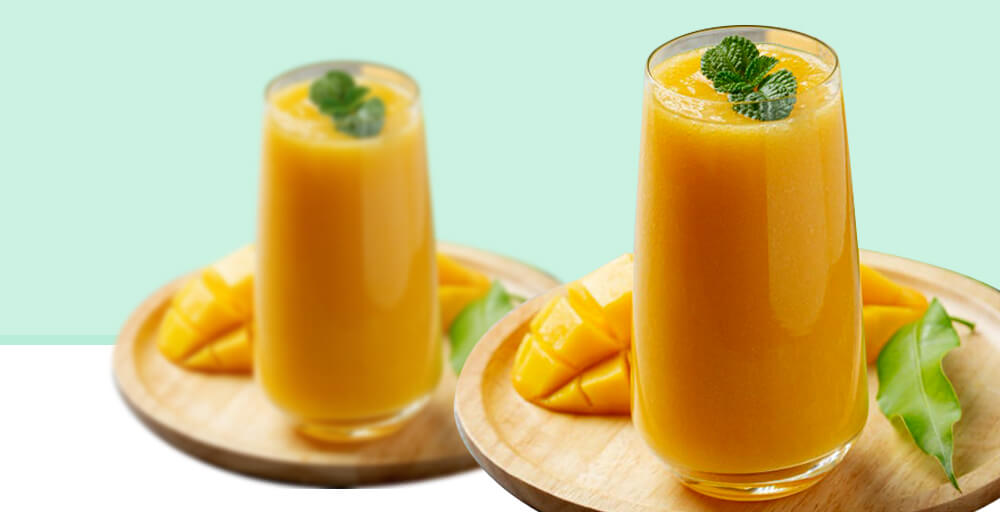
Ingredients:
- 1 cup frozen mango chunks
- 1/2 cup Greek yogurt
- 1/2 cup coconut milk
- 1 tablespoon chia seeds
- A splash of lime juice
Instructions:
- Blend mango chunks, yogurt, coconut milk, chia seeds, and lime juice.
- Blend until smooth.
- Pour into a glass and revel in the tropical flavors of Mango Tango Delight.
Nutritional Value per Serving:
Frozen mango chunks (1 cup):
- Calories: Approximately 100
- Vitamin C: a rich source, promoting immune health
- Vitamin A: Contributes to vision and skin health
- Fiber: Around 3 grams
Greek Yogurt (1/2 cup):
- Calories: Approximately 80
- Protein: About 15 grams
- Calcium: significant amount for bone health
- Probiotics are beneficial for gut health.
Coconut Milk (1/2 cup):
- Calories: Approximately 110
- Healthy Fats: Around 10 grams (mostly saturated fat)
- Magnesium: Contributes to muscle and nerve function
- Manganese: Supports bone health
Chia seeds (1 tablespoon):
- Calories: approximately 60
- Omega-3 fatty acids: a rich source, promoting heart health
- Fiber: About 5 grams
- Protein: Around 2 grams
Splash of Lime Juice:
- Calories: Negligible
- Vitamin C: Contributes to immune health
- Antioxidants provide various health benefits.
Recipe 3: Peachy Keen Vanilla Smoothie
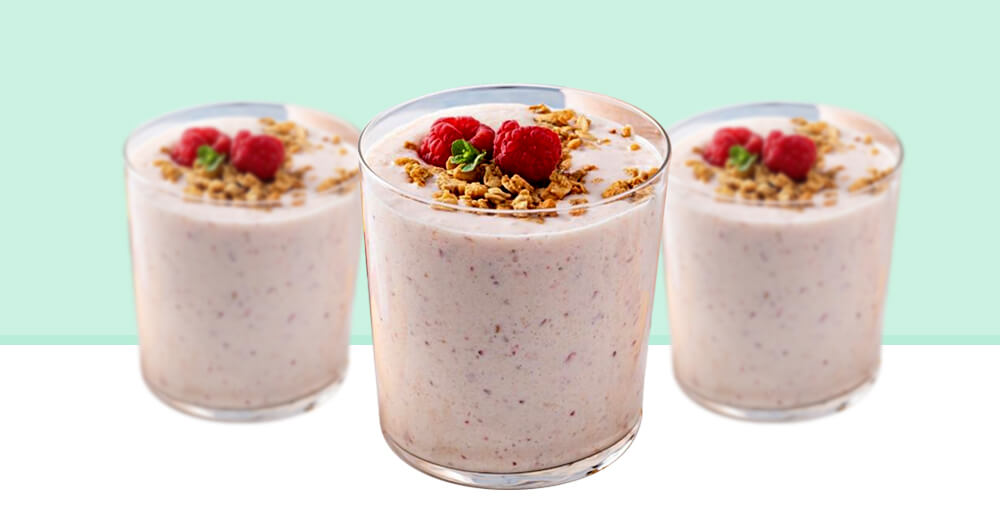
Ingredients:
- 1 cup frozen peach slices
- 1/2 cup vanilla yogurt
- 1/2 cup almond milk
- 1 tablespoon almond butter
- A pinch of cinnamon
Instructions:
- Blend peach slices, yogurt, almond milk, almond butter, and cinnamon until smooth.
- Pour into a glass and savor the sweet and nutty Peachy Keen Vanilla Smoothie!
Nutritional Value per Serving:
1. Frozen Peach Slices (1 cup):
- Calories: approximately 60
- Vitamin C supports immune health.
- Dietary Fiber: Around 2 grams
- Vitamin A: Contributes to vision and skin health
Vanilla Yogurt (1/2 cup):
- Calories: Approximately 110
- Protein: About 5–6 grams
- Calcium: significant amount for bone health
- Probiotics are beneficial for gut health.
Almond Milk (1/2 cup):
- Calories: approximately 15 (unsweetened)
- Low-Calorie Alternative: Suitable for those seeking lower-calorie options
- Calcium: Fortified varieties contribute to bone health.
- Vitamin E: Supports skin health
Almond Butter (1 tablespoon):
- Calories: Approximately 95
- Healthy Fats: About 8 grams (mostly monounsaturated)
- Protein: Around 3 grams
- Vitamin E: Contributes to skin and eye health
Pinch of Cinnamon:
- Calories: Negligible
- Antioxidants provide various health benefits.
- Anti-Inflammatory Properties: Cinnamon is known for its potential anti-inflammatory effects.
Recipe 4: Green Apple Refresher Smoothie
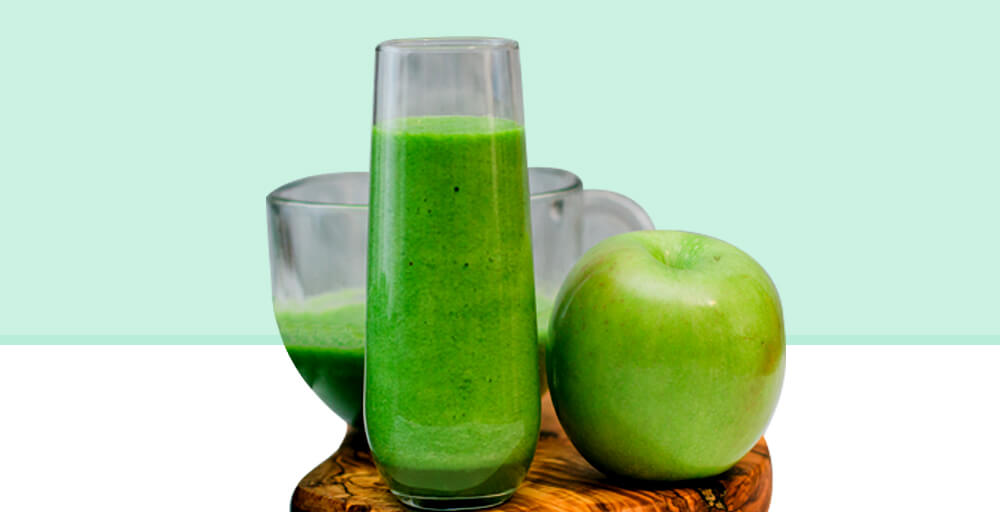
Ingredients:
- 1 cup frozen green apple slices
- 1/2 cup plain yogurt
- 1/2 cup green tea, chilled
- 1 tablespoon honey
- A handful of fresh mint leaves
Instructions:
- Blend green apple slices, yogurt, green tea, honey, and mint leaves until smooth.
- Pour into a glass and refresh yourself with the Green Apple Refresher Smoothie!
Nutritional Value per Serving:
Frozen Peach Slices (1 cup):
- Calories: approximately 60
- Vitamin C supports immune health.
- Dietary Fiber: Around 2 grams
- Vitamin A: Contributes to vision and skin health
Vanilla Yogurt (1/2 cup):
- Calories: Approximately 110
- Protein: About 5–6 grams
- Calcium: significant amount for bone health
- Probiotics are beneficial for gut health.
Almond Milk (1/2 cup):
- Calories: approximately 15 (unsweetened)
- Low-Calorie Alternative: Suitable for those seeking lower-calorie options
- Calcium: Fortified varieties contribute to bone health.
- Vitamin E: Supports skin health
Almond Butter (1 tablespoon):
- Calories: Approximately 95
- Healthy Fats: About 8 grams (mostly monounsaturated)
- Protein: Around 3 grams
- Vitamin E: Contributes to skin and eye health
Pinch of Cinnamon:
- Calories: Negligible
- Antioxidants provide various health benefits.
- Anti-Inflammatory Properties: Cinnamon is known for its potential anti-inflammatory effects.
Benefits of a smoothie with yogurt and frozen fruit
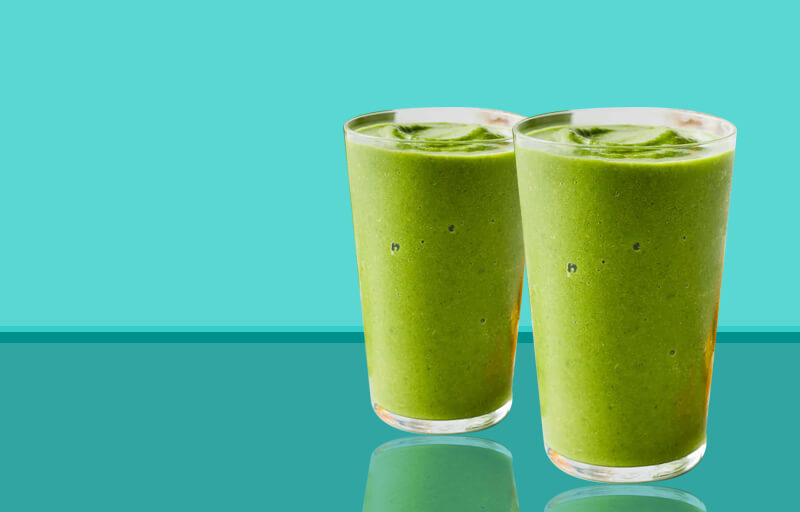
1. Nutrient-Rich Boost:
Incorporating yogurt and frozen fruits into smoothies adds essential nutrients, including vitamins, minerals, and antioxidants, promoting overall health.
2. Digestive Health:
Yogurt contains probiotics, supporting a healthy gut microbiome. This aids digestion and can enhance nutrient absorption from the fruits.
3. Protein Powerhouse:
Yogurt is a rich source of protein, contributing to muscle repair and maintenance. This is beneficial for those looking to incorporate protein into their diet.
4. Bone Health:
The calcium in yogurt supports bone health, which is crucial for maintaining strong and healthy bones.
5. Weight Management:
Protein and fiber in yogurt and frozen fruits can help increase feelings of fullness, potentially aiding in weight management and preventing overeating.
6. Immune Boost:
Vitamin C from frozen fruits, coupled with the probiotics in yogurt, provides a dual immune-boosting effect, enhancing the body’s defense mechanisms.
7. Hydration Support:
Frozen fruits contribute to the overall fluid content of the smoothie, aiding in hydration along with other beverages like water or juice.
8. Energy Kick:
Natural sugars from fruits, combined with the energy-providing properties of yogurt, offer a healthy source of energy for various activities throughout the day.
9. Antioxidant Defense:
The combination of antioxidants from frozen fruits and yogurt helps combat oxidative stress, supporting cellular health and reducing the risk of chronic diseases.
10. Taste Variety:
Yogurt and frozen fruits provide a versatile base for creating a variety of flavorful smoothies, catering to different taste preferences and allowing experimentation with diverse ingredient combinations.
Frequently Asked Questions
1. How do I make a smoothie with yogurt and frozen fruit?
Explore a simple guide to crafting a delicious smoothie with yogurt and frozen fruit. Learn about the balance of ingredients for optimal taste and texture.
2. Can I use regular yogurt instead of Greek yogurt in a frozen fruit smoothie?
Discover the flexibility of yogurt choices in smoothies and find out if regular yogurt can be substituted for Greek yogurt, understanding the impact on creaminess and flavor.
3. What frozen fruits work best in a yogurt smoothie?
Learn about the best frozen fruit options for creating a flavorful and nutritious yogurt smoothie. Explore combinations that enhance taste and nutritional value.
4. Are there low-sugar options for yogurt and frozen fruit smoothies?
Explore tips and alternatives for reducing the sugar content of yogurt and frozen fruit smoothies while maintaining a delicious taste. Discover natural sweeteners and low-sugar fruit options.
5. Can I make dairy-free yogurt and frozen fruit smoothies?
Explore dairy-free alternatives for creating a yogurt and frozen fruit smoothie by using plant-based yogurt options. Learn how to achieve a similar creamy consistency without dairy.
Conclusion
In conclusion, crafting a smoothie with yogurt and frozen fruit is a delightful journey into both flavor and nutrition. This dynamic combination offers a refreshing blend of creamy texture, probiotic goodness from yogurt, and the vibrant nutrients locked in frozen fruits. Whether you opt for the protein punch of Greek yogurt or explore dairy-free alternatives, the versatility is endless. These smoothies are a delicious means to boost immune health, support digestion, and indulge in a guilt-free treat. With endless possibilities for flavor combinations, creating a smoothie with yogurt and frozen fruit is not just a culinary delight but a wholesome and customizable wellness ritual.

